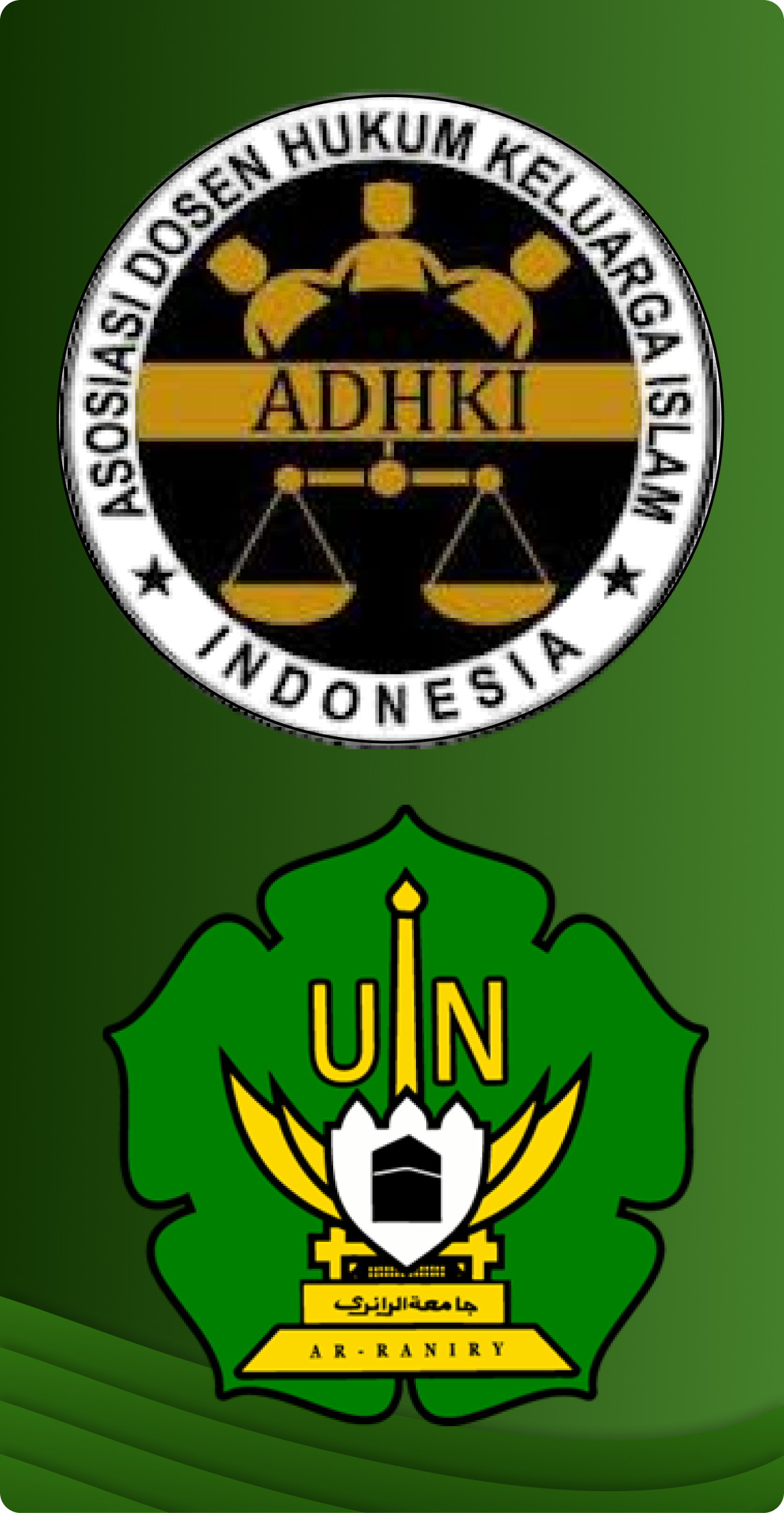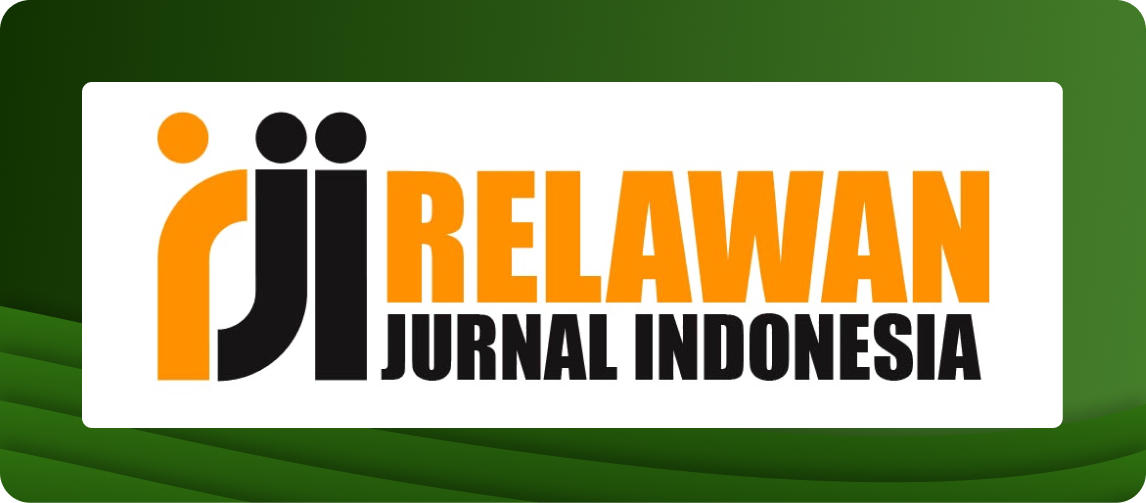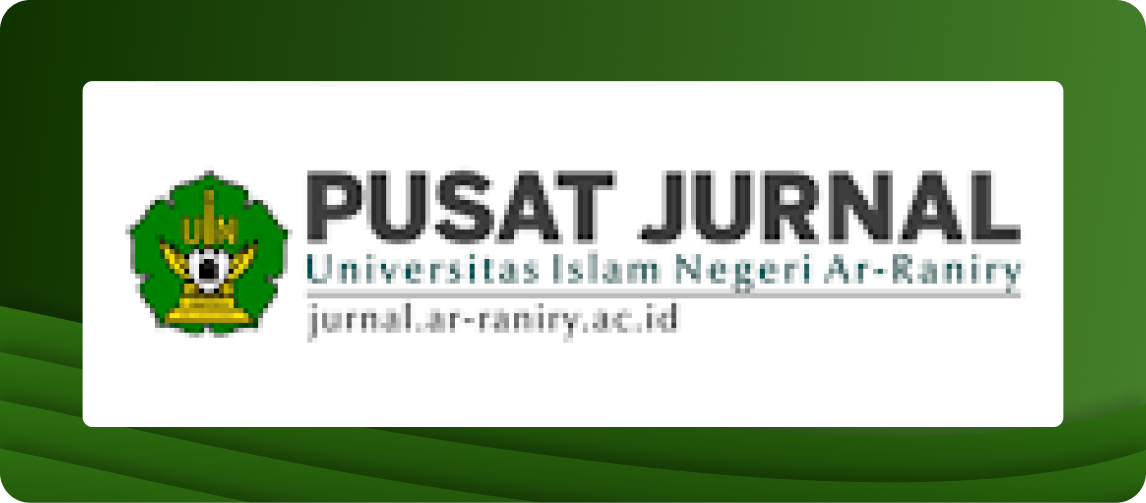Problematic Fatwa: An In-Depth Sociological Investigation of MUI’s Fatwa on Supporting Palestine’s Struggle
DOI:
https://doi.org/10.22373/ujhk.v7i1.22020Keywords:
Problematic Fatwa, MUI, Fatwa, Supporting Palestine’s StruggleAbstract
The purpose of this study is to assess and reveal the social background of the emergence, the suitability of methodology and istidlāl, and the problematic aspects of the Indonesian Ulema Council Fatwa Number 83 of 2023 concerning the Law of Support for the Palestinian Struggle. This research is empirical with a sociology of law approach. Data sources were obtained through MUI fatwa, interviews with a number of MUI administrators in the region, and literature study data. Data analysis through the stages of reduction, presentation, and conclusion. The research found that the social background of the fatwa arose due to questions and pressure on MUI to respond to the social reality that occurred in Palestine. In the fatwa of support for the Palestinian cause, MUI uses the naş approach and the qaulī approach. The opinions of the madhhab scholars quoted are dominated by the al-Shāfi'ī madhhab. The construct of istidlāl is in accordance with the fatwa methodology established by MUI. Meanwhile, the problematic dimension of the fatwa lies in the ruling of "haram" without explaining the criteria. Haram cannot be ruled on something that is not convincing. The reaction of intellectuals on social media, both pro and contra the fatwa, to the fatwa is an indication to question the competence and representation that MUI wants to bring. MUI did not release the list of boycotted products (at least criteria/indication), so it backfired on some of the affected products. In the future, MUI's assertiveness in issuing fatwa is still needed with language that is easier to understand.
References
Journals and Books
Achmad, Hudzaifah, et.al., “Analysis on Fatwa of Majelis Permusyawaratan Ulama Aceh (MPU) on Against Prohibition of PUBG: A Legal View Based on Maslahah and Mafsadah,” Jurnal Ilmiah Islam Futura 20, No. 2 (2020). DOI: http://dx.doi.org/10.22373/jiif.v0i0.5788.
Alfitri Alfitri, “Bureaucratizing Fatwā in Indonesia: The Council of Indonesian Ulama and Its Quasi-Legislative Power,” Ulumuna: Journal of Islamic Studies 24, No. 2 (2020). DOI: https://doi.org/10.20414/ujis.v24i2.412
Alnizar, Fariz, et.al., “Following the Global Rejection: The Motives of Majelis Ulama Indonesia’s Fatwas on Ahmadiyah.” Studia Islamika 29, no. 3 (2023). https://doi.org/10.36712/sdi.v29i3.15349.
Ansori. “Position of Fatwa in Islamic Law: The Effectiveness of MUI, NU, and Muhammadiyah Fatwas.” Ijtihad: Jurnal Wacana Hukum Islam Dan Kemanusiaan 22, no. 1 (2022). https://doi.org/10.18326/ijtihad.v22i1.53-71.
Arisandy, Danil Putra, Asmuni Asmuni, and Muhammad Syukri Albani Nasution. “The Majelis Ulama’s Fatwa on Freedom of Expression On Social Media: The Perspective of Maqashid Sharia.” Al-Istinbath : Jurnal Hukum Islam 7, no. 2 (2022): 467–86. https://doi.org/10.29240/jhi.v7i2.5235.
Athoillah, Mohamad Anton, et.al., “The Historicity of the Economic Verses on Fatwa of DSN-MUI about Sharia Electronic Money,” Jurnal Ilmiah Peuradeun 9, No. 1 (2021). DOI: https://doi.org/10.26811/peuradeun.v9i1.545.
Bakry, Muammar, et.al., “Reflections of Contemporary Islamic Law to The Spirit Doll Phenomenon; A Sadd Al-Żarī'ah Perspective,” Samarah: Jurnal Hukum Keluarga dan Hukum Islam 6, No. 1 (2021). DOI: http://dx.doi.org/10.22373/sjhk.v6i1.12974.
Bahrudin, Moh., et.al, “The Implementation of Ijtihād Jamā’iy in MUI’s Fatwa Commission.” Walisongo: Jurnal Penelitian Sosial Keagamaan 28, no. 2 (2020). https://doi.org/10.21580/ws.28.2.6293.
Dahlan, Abdurrahman, et.al., “Al-Buti's Thoughts on Maslāhah and Its Application in the Fatwa of World Fatwa Institutions,” Samarah: Jurnal Hukum Keluarga dan Hukum Islam 7, No. 2 (2023). DOI: http://dx.doi.org/10.22373/sjhk.v7i2.17552.
Darna, Andi. “Perkembangan Hukum Islam Di Indonesia: Konsep Fiqih Sosial Dan Implementasinya Dalam Hukum Keluarga.” El-Usrah: Jurnal Hukum Keluarga 4, no. 1 (2021). https://doi.org/10.22373/ujhk.v4i1.8780.
Hamzah, Muhammad Maulana. “Peran Dan Pengaruh Fatwa Mui Dalam Arus Transformasi Sosial Budaya Di Indonesia in Indonesia.” Millah: Jurnal Studi Agama 17, no. 1 (2017). https://doi.org/10.20885/millah.vol17.iss1.art7.
Hanafi, Yusuf, et.al., “Indonesian Ulema Council Fatwa on Religious Activities During the COVID-19 Pandemic: An Investigation of Muslim Attitudes and Practices.” Journal of Religion and Health 62, no. 1 (2023). https://doi.org/10.1007/s10943-022-01639-w.
Hasyim, Syafiq. “Religious Pluralism Revisited: Discursive Patterns of the Ulama Fatwa in Indonesia and Malaysia.” Studia Islamika 26, no. 3 (2019). https://doi.org/10.36712/sdi.v26i3.10623.
Hilaly Basya, M. “The Concept of Religious Pluralism in Indonesia: A Study of the MUI’s Fatwa and the Debate among Muslim Scholars.” Indonesian Journal of Islam and Muslim Societies 1, no. 1 (2011). https://doi.org/10.18326/ijims.v1i1.69-93.
Iswahyudi. “MUI dan Nalar Fatwa-fatwa Eksklusif. ”Al-Ihkam: Jurnal Hukum dan Pranata Sosial 11, No. 2 (2016). https://doi.org/10.19105/al-lhkam.v11i2.785.
Jamaa, La. “Fatwas of the Indonesian Council of Ulama and Its Contributions to the Development of Contemporary Islamic Law in Indonesia.” Indonesian Journal of Islam and Muslim Societies 8, no. 1 (2018). https://doi.org/10.18326/ijims.v8i1.29-56.
Khamim, “Analysis of the Heretical Fatwa of the MUI of West Kalimantan Province No. 01/ MUI-Kalimantan Barat/I/2016 on the Teachings of the Gerakan Fajar Nusantara (GAFATAR),” Journal of Islamic Law 1, No. 1 (2020), 64-82, https://doi.org/10.24260/jil.v1i1.8.
Mariyam, Siti. “Frame Berita Kasus Dugaan Penistaan Agama Ahok Di Website FPI.” Al-Munzir - Jurnal Kajian Llmu-Ilmu Komunikasi Dan Bimbingan Islam 14, no. 1 (2021): 1–22. https://doi.org/10.31332/am.v14i1.2465.
Muchtar, Masyrofah and Nahrowi Salam. “Israel’s Violations of the International Agreement in Siyasah Kharijiyyah (Study of Israeli-Palestinian Peace Agreement 1993-2007).” Ahkam: Jurnal Ilmu Syariah 19, No. 1 (2019), 97-126, 10.15408/ajis.v19i1.10890.
Mudzhar, Mohamad Atho. Fatwa-Fatwa Majelis Ulama Indonesia: Sebuah Studi Tentang Pemikiran Hukum Islam Di Indonesia 1975-1988. Jakarta: INSIST, 1993.
Mun’im, Zainul. “The Epistemology of MUI’s Fatwas on Covid-19: Bayani and Burhani Eclecticism.” Al-Istinbath: Jurnal Hukum Islam 7, no. 1 (2022): 1–20. https://doi.org/10.29240/jhi.v7i1.3216.
Musarrofa, Ita and Holilur Rohman. “'Urf of Cyberspace: Solutions to the Problems of Islamic Law in the Digital Age.” Al-Ahkam 33, No. 1 (2023), 63-88, 10.21580/ahkam.2023.33.1.13236.
Nurhadi, Nurhadi. “Muslims’ Participation in Christmas Celebrations: A Critical Study on the Fatwa of the Council of Indonesian Ulama.” Al-Jami’ah: Journal of Islamic Studies 40, no. 2 (2002):280–303. https://aljamiah.or.id/index.php/AJIS/article/view/2812%0Afiles/898/Nurhadi-2002-Muslims’ Participation in Christmas Celebrations .pdf.
Pelu, Ibnu Elmi AS. “Kedudukan Fatwa Dalam Konstruksi Hukum Islam.” El-Mashlahah 9, No. 2, (2019), 10.23971/maslahah.v9i2.1692.
Radatilla, and Siti Aisyah. “Islamic Law and Positive Law in Indonesia's Transgender Behavior.” Mazahibuna: Jurnal Perbandingan Mazhab 3, no. 2 (2021). https://doi.org/10.24252/mh.v.
Riyanta, Imam Muhsin, Fathorrahman, and Saptoni. “The Dynamic of Worship and Responses of Nahdlatul Ulama Members in Bantul, Yogyakarta, Toward the Indonesian Council of Ulama ’ s Fatwa on the Worship During the Covid-19 Pandemic Saptoni Abstract : Keywords : Abstrak :” Al-Ihkam: Jurnal Hukum Dan Pranata Sosial 17, no. 1 (2022): 136–64. https://doi.org/10.19105/al-Ihkam.v17i1.5638.
Rosyid, Maskur and M. Nurul Irfan. “Reading Fatwas of MUI a Perspective of Maslahah Concept.” Syariah: Jurnal Hukum dan Pemikiran 19, No. 1 (2019). 91-117, https://doi.org/10.18592/sjhp.v19i1.2726.
Shuhufi, Muhammad., et.al., “Islamic Law and Social Media: Analyzing the Fatwa of Indonesian Ulama Council Regarding Interaction on Digital Platform.”Samarah: Jurnal Hukum Keluarga dan Hukum Islam 6, No. 2 (2022). DOI: 10.22373/sjhk.v6i2.15011.
Silwana, Andi Sani, et.al., “Peran Fatwa dalam Pembentukan Perundang-Undangan di Indonesia,” Al-Ubudiyah: Jurnal Pendidikan dan Studi Islam 4, No. 1 (2023). DOI:10.55623/au.v4i1.177
Sirry, Mun’im. “Fatwas and Their Controversy : The Case of the Council of Indonesian Ulama ( MUI ).” Journal of Southeast Asian Studies 44, no. 1 (2013): 100–117. https://doi.org/10.1017/S0022463412000641.
Suaedy, Ahmad, et.al., “Language, Authority, and Digital Media: The Impact on the Legitimacy of Fatwas.” Ahkam: Jurnal Ilmu Syariah 23, no. 1 (2023): 1–24. https://doi.org/10.15408/ajis.v23i1.28875.
Suryani, Irma. “Metode Fatwa Majelis Ulama Indonesia.” Juris: Jurnal Ilmiah Syariah 9, No. 2, (2010), 175-184, http://dx.doi.org/10.31958/juris.v9i2.915.
Syatar, Abdul, et.al., “The Development of Fatwas Based on Local Wisdom to the National Level: A Case Study of Panaik Money Fatwa.” El-Mashlahah 13, no. 2 (2023): 133–50. https://doi.org/10.23971/el-mashlahah.v13i2.7373.
Syifa Amin Widigdo, Mohammad, and Homaidi Hamid. “The Power of Fatwā in Indonesia: An Analysis of MUI’s Controversial Fatwās.” Afkaruna 14, no. 2 (2018): 146–66. https://doi.org/10.18196/aiijis.2018.0085.146-165.
Syuhadak, Faridatus. “Urgensi Fatwa dalam Perkembangan Hukum Islam.” De jure: Jurnal Hukum dan Syar'iah 5, No. 2 (2013), 189-196, https://doi.org/10.18860/j-fsh.v5i2.3010.
Ulum, Khozainul, “Fatwa-Fatwa Majelis Ulama Indonesia (Mui) Dalam Pemikiran Hukum Islam di Indonesia,” Jurnal Akademika 8, 2 (2014). DOI: 10.30736/akademika.v8i2.83
Wajdi, Farid. “The Role of the Indonesian Ulema Council as the Giver of Fatwa.” Injects: International Journal of Economic, Technology and Social Sciences 2, no. 2 (2021): 592–610.
Wijaya, Abdi. “Daya Serap Lembaga-Lembaga Fatwa Terhadap Masalah-Masalah Hukum Kontemporer; Studi Komparatif Lembaga Fatwa MUI, Majelis Tarjih Muhammadiyah Dan Bahtsul Masail NU.” Mazahibuna 1, no. 2 (2019). https://doi.org/10.24252/mh.v1i2.10624.
Witro, Doli. “State Islamic University Students’ Perceptions of Israel Affiliated Products: A Study After the Fatwa of Indonesian Ulema Council No. 83 of 2023 Concerning the Law on Support for the Palestinian Struggle.” Al-Manahij: Jurnal Kajian Hukum Islam 18, No. 1 (2024). 145-160, https://doi.org/10.24090/mnh.v18i1.10554.
Internet Data
Majelis Ulama Indonesia, “Fatwa Majelis Ulama Indonesia Nomor 83 Tahun 2023 Tentang Hukum Dukungan Terhadap Perjuangan Palestina” (Jakarta: mui.or.id, 2023), https://www.mui.or.id/public/index.php/baca/fatwa/hukum-dukungan-terhadap-perjuangan-palestina.
Ahmad Naufa, “Terkait Seruan MUI Boikot Produk Yang Dukung Israel, Prof Quraish Shihab: Harus Berpikir Dan Teliti!,” NUonline, 2023, https://www.nu.or.id/nasional/terkait-seruan-mui-boikot-produk-yang-dukung-israel-prof-quraish-shihab-harus-berpikir-dan-teliti-uUFyf.
Interviews
Interview with Dr. Ahmad, the Chair of the Kendari City MUI Fatwa Commission, November 25, 2023.
Interview with Dr. Syamsul Bahri, the Secretary of the Fatwa Commission of the MUI of South Sulawesi Province, November 20, 2023.
Downloads
Published
Issue
Section
License
Authors who publish in El-Usrah: Jurnal Hukum Keluarga agree to the following terms:
Authors retain copyright and grant the journal right of first publication with the work simultaneously licensed Attribution-ShareAlike 4.0 International (CC BY-SA 4.0) that allows others to share the work with an acknowledgment of the work's authorship and initial publication in this journal.
Authors are able to enter into separate, additional contractual arrangements for the non-exclusive distribution of the journal's published version of the work (e.g., post it to an institutional repository or publish it in a book), with an acknowledgment of its initial publication in this journal.
Authors are permitted and encouraged to post their work online (e.g., in institutional repositories or on their website) prior to and during the submission process, as it can lead to productive exchanges, as well as earlier and greater citation of published work. (See The Effect of Open Acces)

















